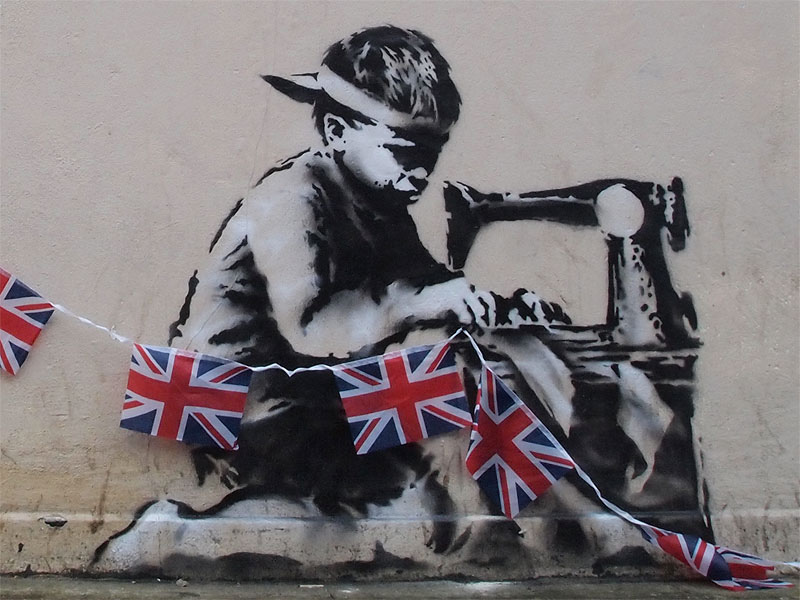UK plummets in global children’s rights rankings

Poundland, Banksy
The UK has been accused of ‘inadequate’ protection of children’s rights after an alarming plummet in its standing on the global children rights rankings. The Kids Rights Index 2017, an annual report that charts the performance of 165 countries in relation to children’s rights issues, has put the UK at 156th place, among the bottom 10 nations globally. This represents a dramatic drop from the UK’s 11th place listing in 2016.
The Index, put together by the children’s rights foundation KidsRights in conjunction with Erasmus University, Rotterdam, pools data from both Unicef and the United Nations Committee on the Rights of the Child (CRC) to rate the extent to which a country has implemented the general principles of the CRC and to which there is a basic infrastructure for making and implementing children’s rights policies.
The UK received the lowest possible score across all six indicators examined, which cover non-discrimination, the best interests of the child, enabling legislation, and respect for the views of the child.
Particular concern was raised about the high levels of structural discrimination within the UK, especially the increase in the levels of discrimination faced by Muslim children following recent anti-terrorism measures, and the continually rising discrimination against refugee children and Roma children.
Following the publication of the Index, Marc Dullaert, founder and chairman of the KidsRights Foundation, urged the UK to treat non-discrimination as a policy priority, and to speed up the process of aligning its child protection laws with the Convention on the Rights of the Child at both the national and devolved levels.
‘Discrimination against vulnerable groups of children and youths is severely hampering opportunities for future generations to reach their full potential,’ Mr Dullaert said. ‘Following the general election, the new government should demonstrate to the world that it will not allow the retreat from the EU to adversely affect the rights and opportunities of its children.’
Lord Philip Hunt, shadow deputy leader of the House of Lords and shadow health spokesperson, said that the report exposed ‘the inactivity of the current UK Government and inadequate service provision in this most important area of policy making; rights of the child’. ‘The UK is the 6th largest economy globally and therefore has the resources at its disposal to ensure that our children are adequately protected and cared for across multiple disciplines. Our children are our future and the barometer of our approach to social justice and the state of our society.’
The Index, which assesses countries’ commitments to the rights of the child in relation to available resources, found that the more economically developed countries are not necessarily outperforming the rest. Poorer countries such as Thailand and Tunisia were featured in the top 10, while wealthier and more industrialised nations came far lower, with New Zealand joining the UK in the bottom ten global performers.
It concluded that industrialised nations were falling short of allocating sufficient budgets towards creating a stable environment for children’s rights, by neglecting their leadership responsibilities and failing to invest in the rights of children to the best of their abilities.






